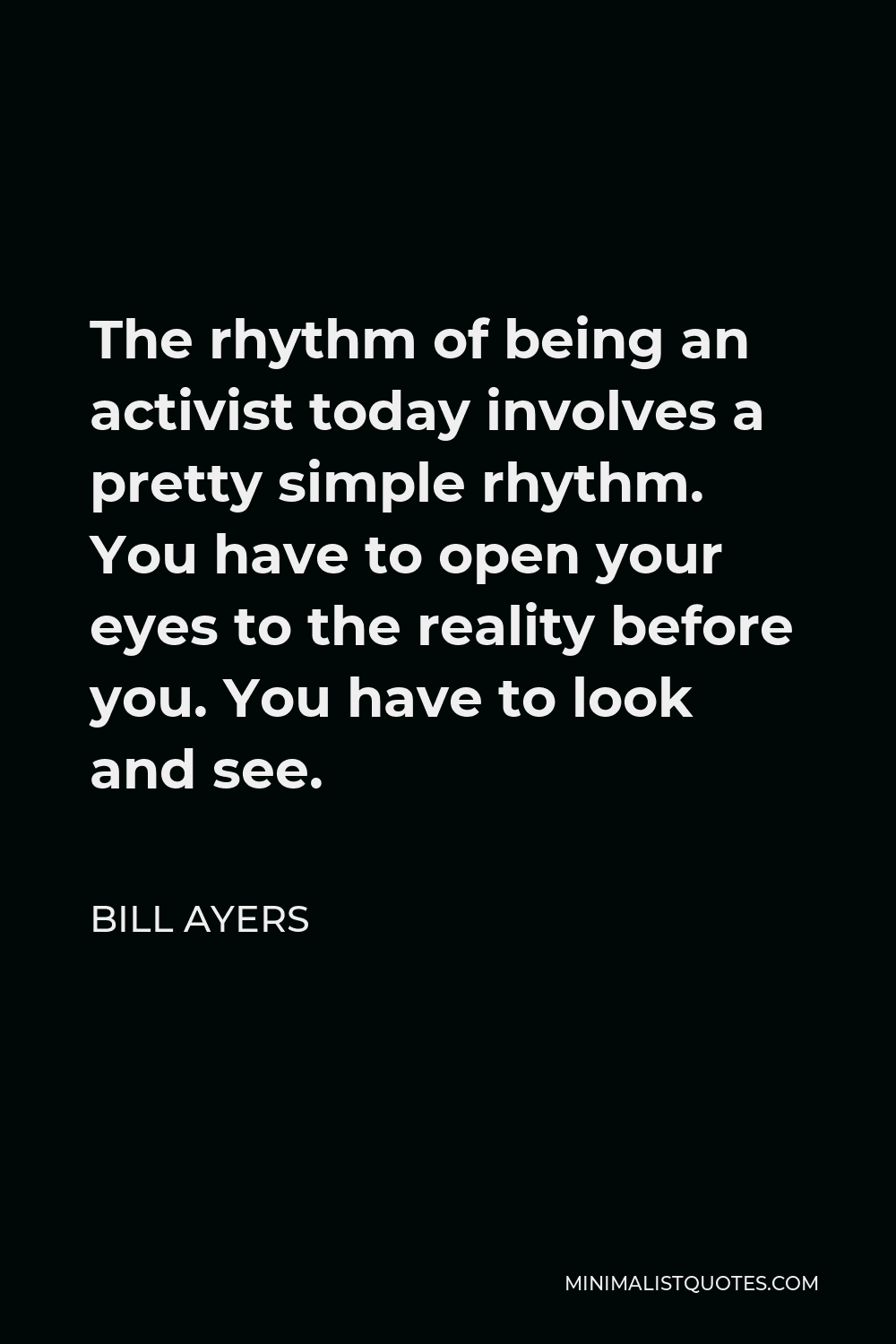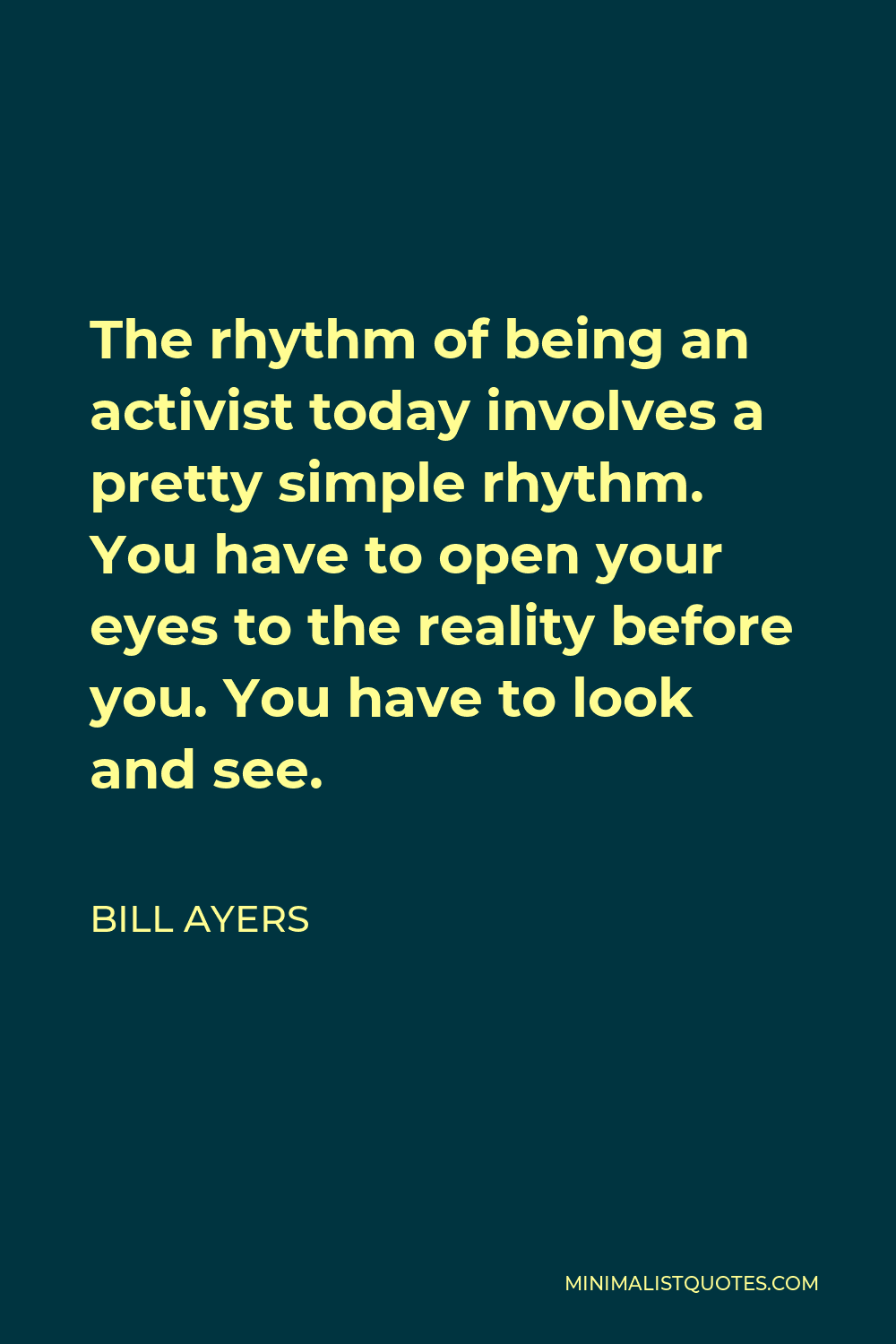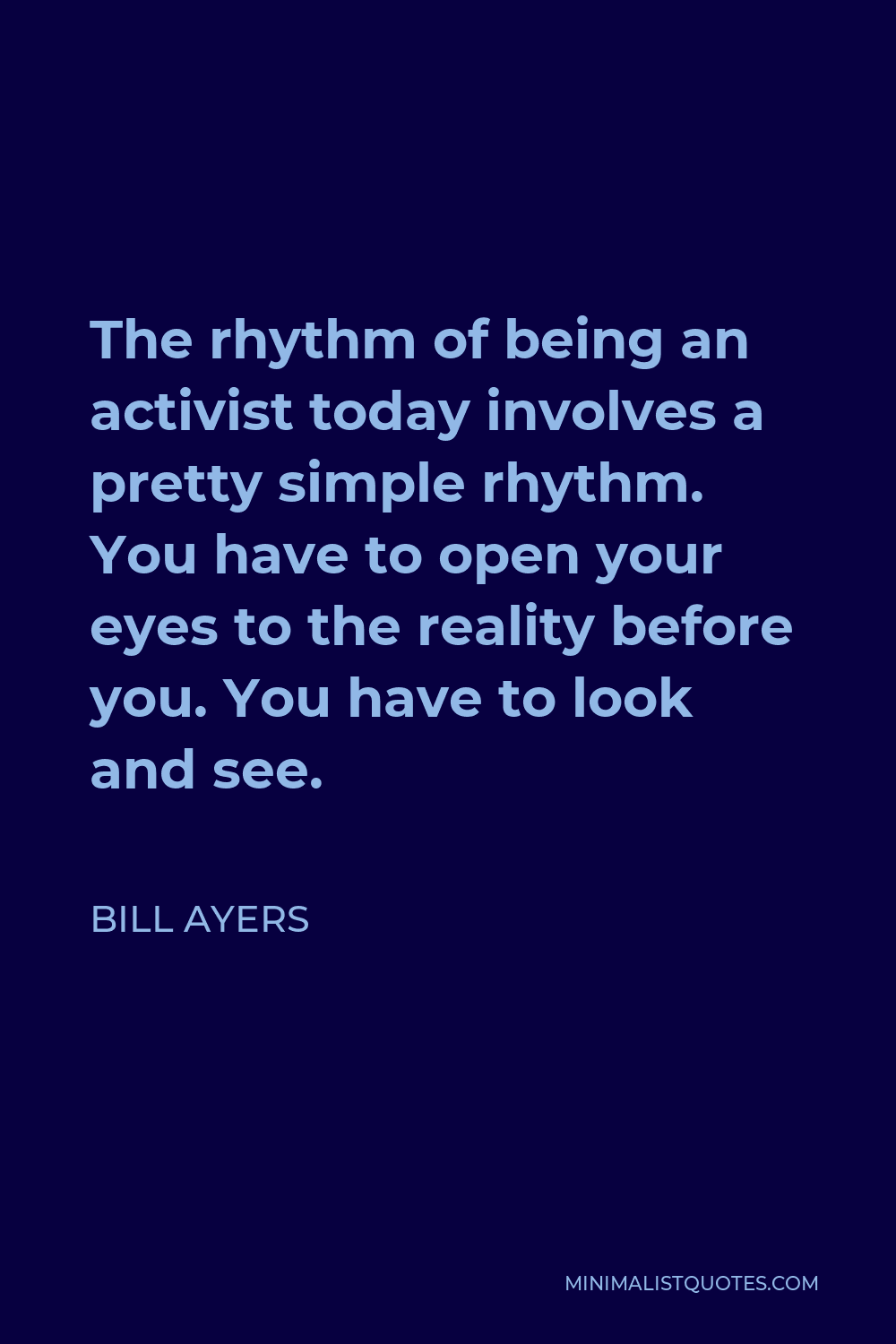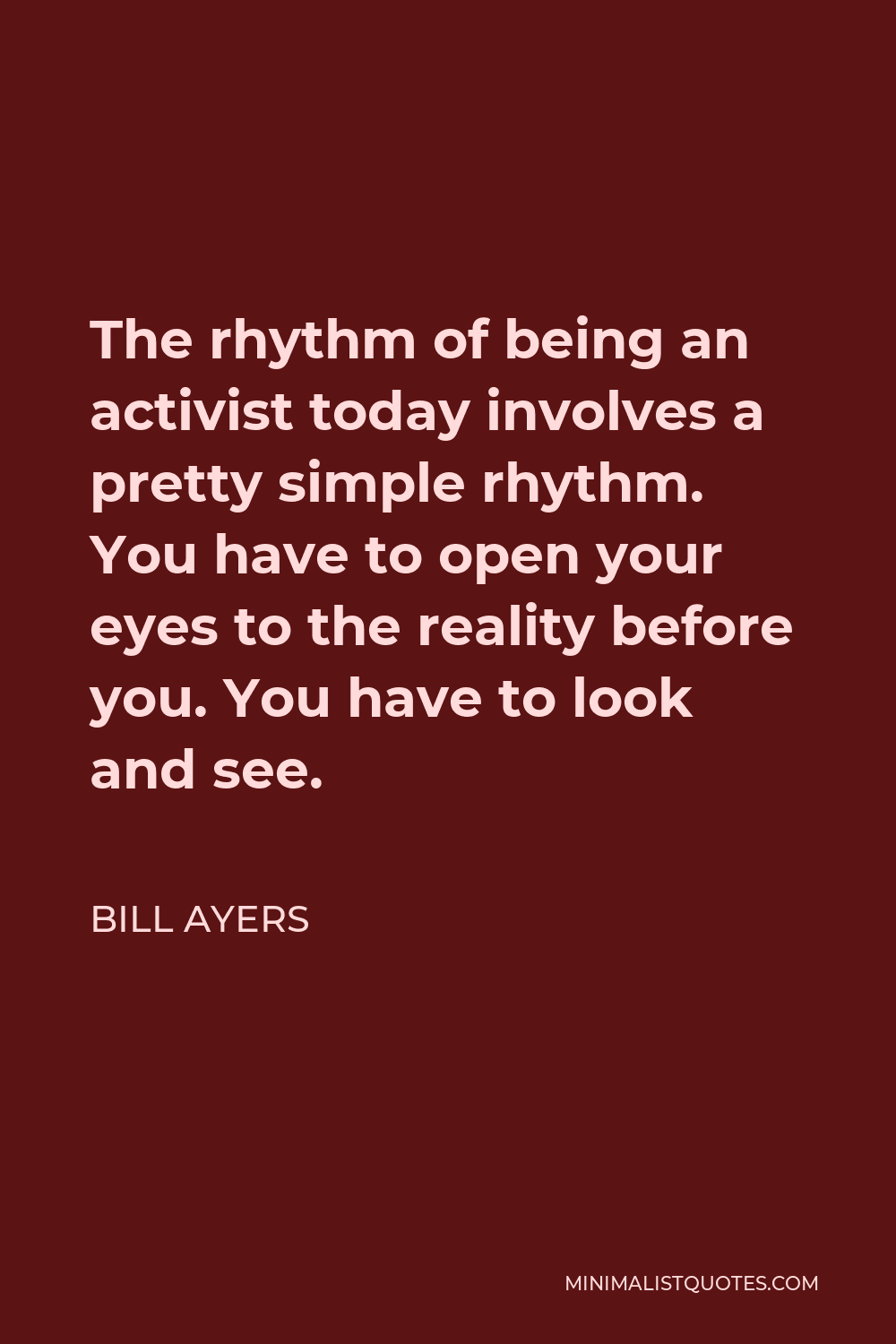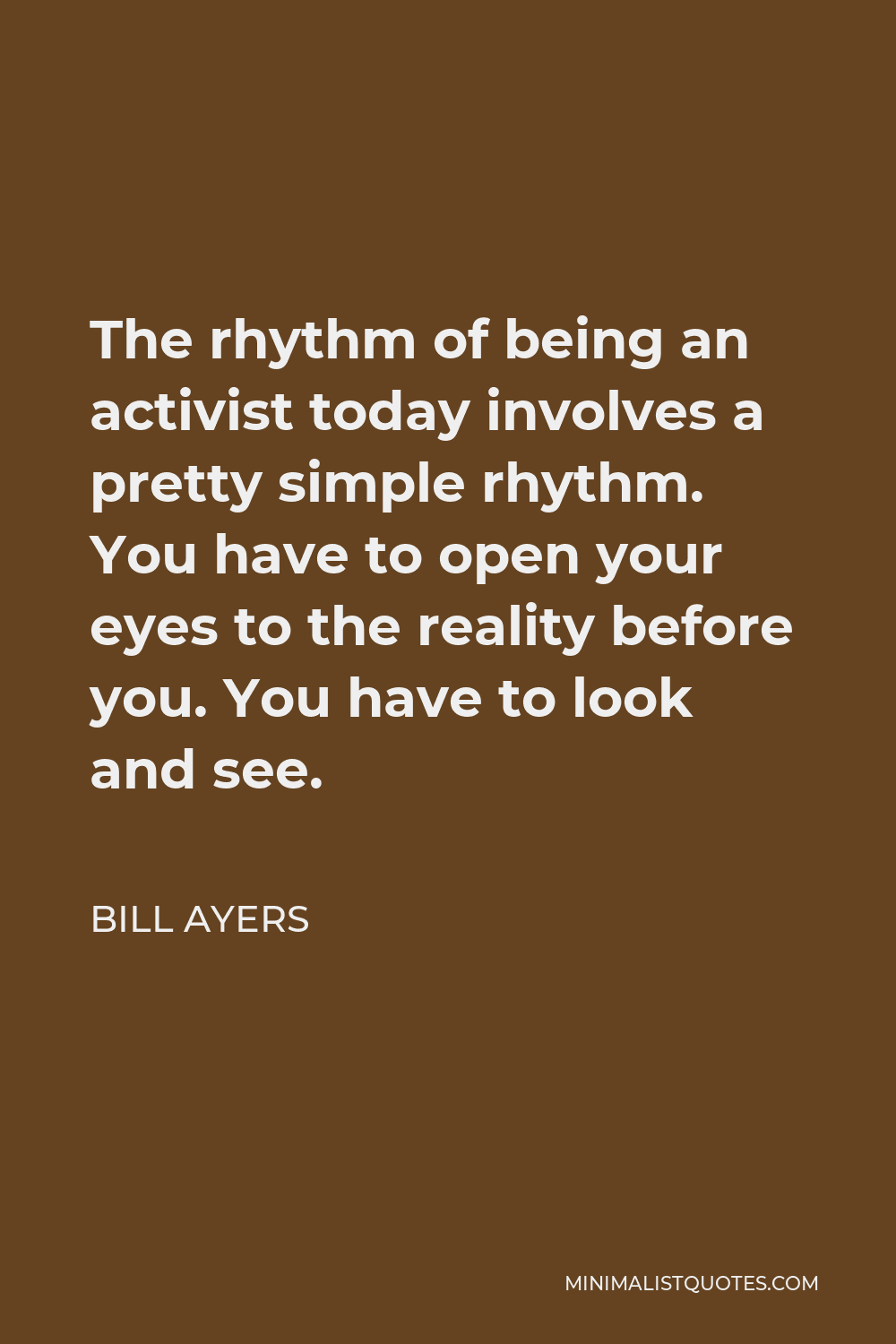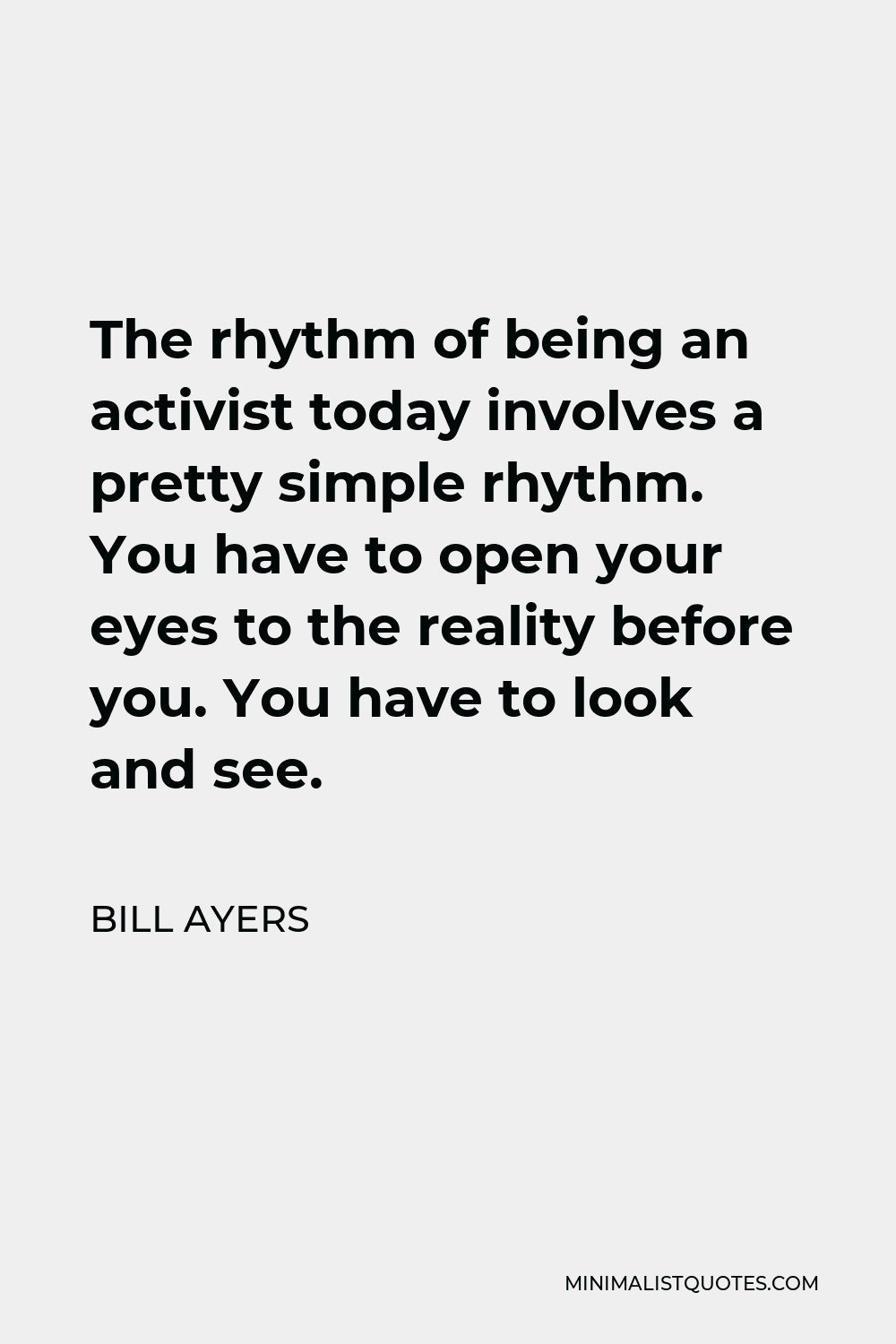Everything was absolutely ideal on the day I bombed the Pentagon.
BILL AYERSThe rhythm of being an activist today involves a pretty simple rhythm. You have to open your eyes to the reality before you. You have to look and see.
More Bill Ayers Quotes
-





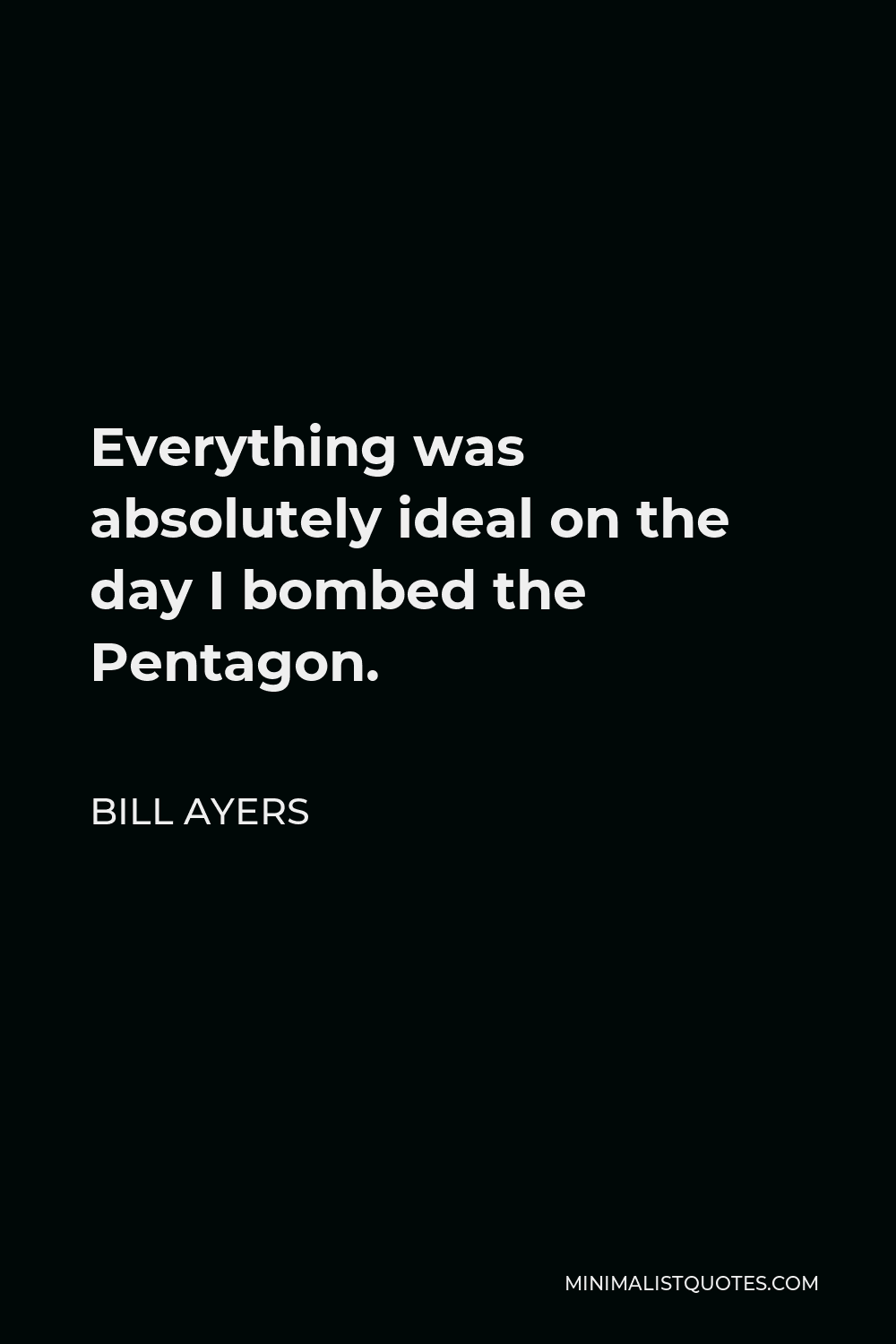
-





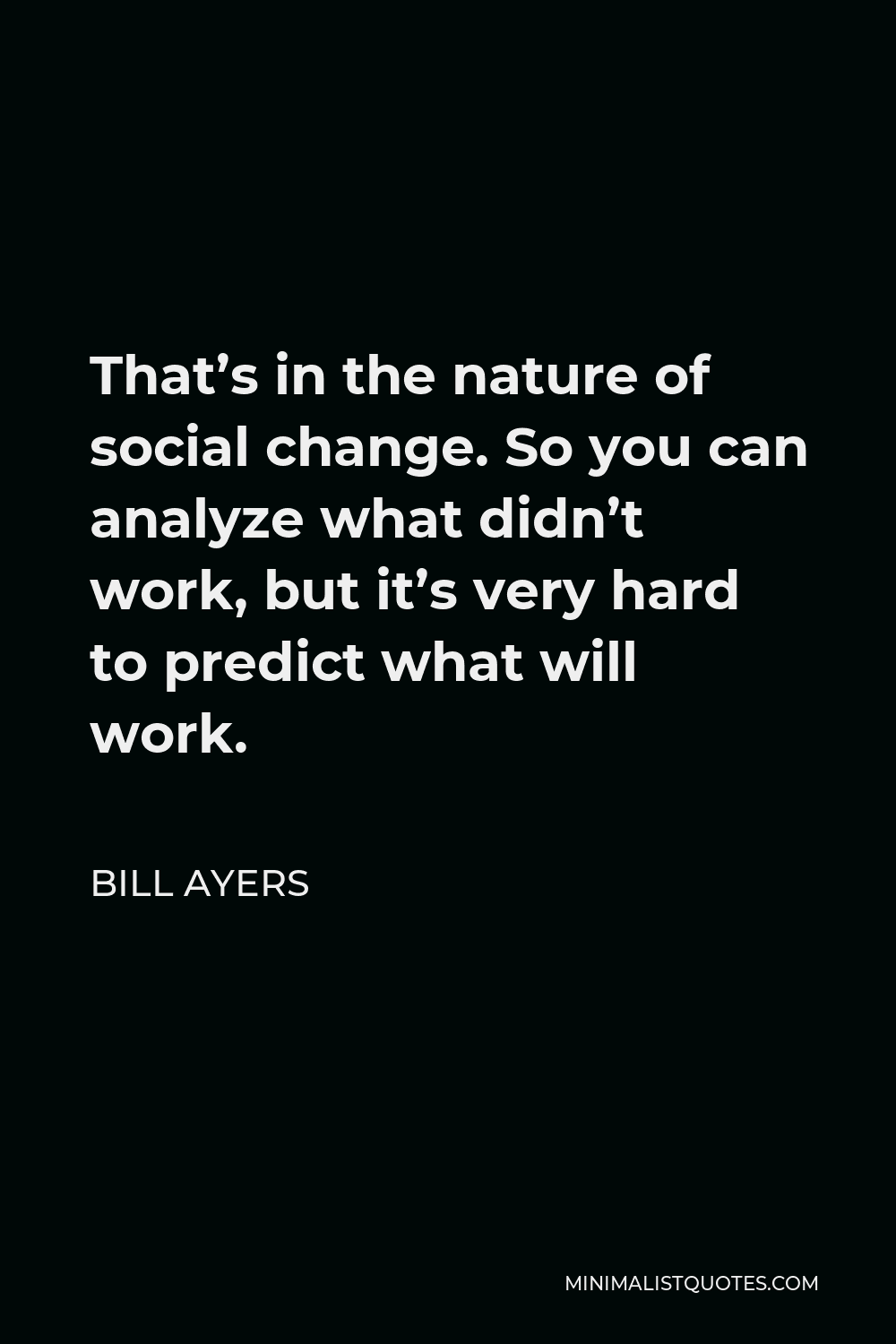
That’s in the nature of social change. So you can analyze what didn’t work, but it’s very hard to predict what will work.
BILL AYERS -





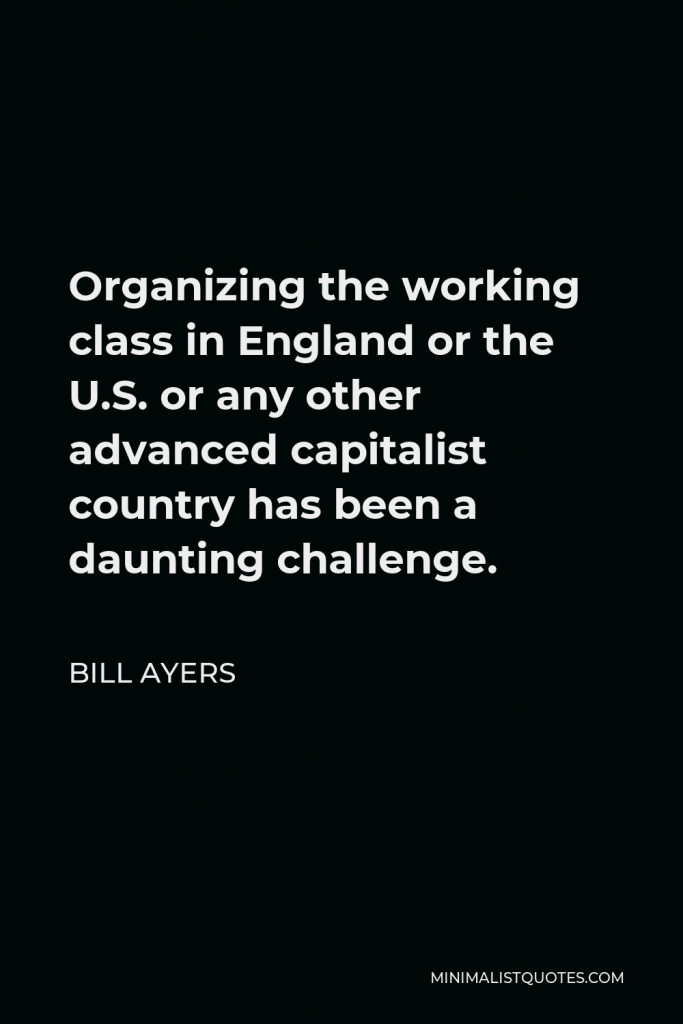

Organizing the working class in England or the U.S. or any other advanced capitalist country has been a daunting challenge.
BILL AYERS -





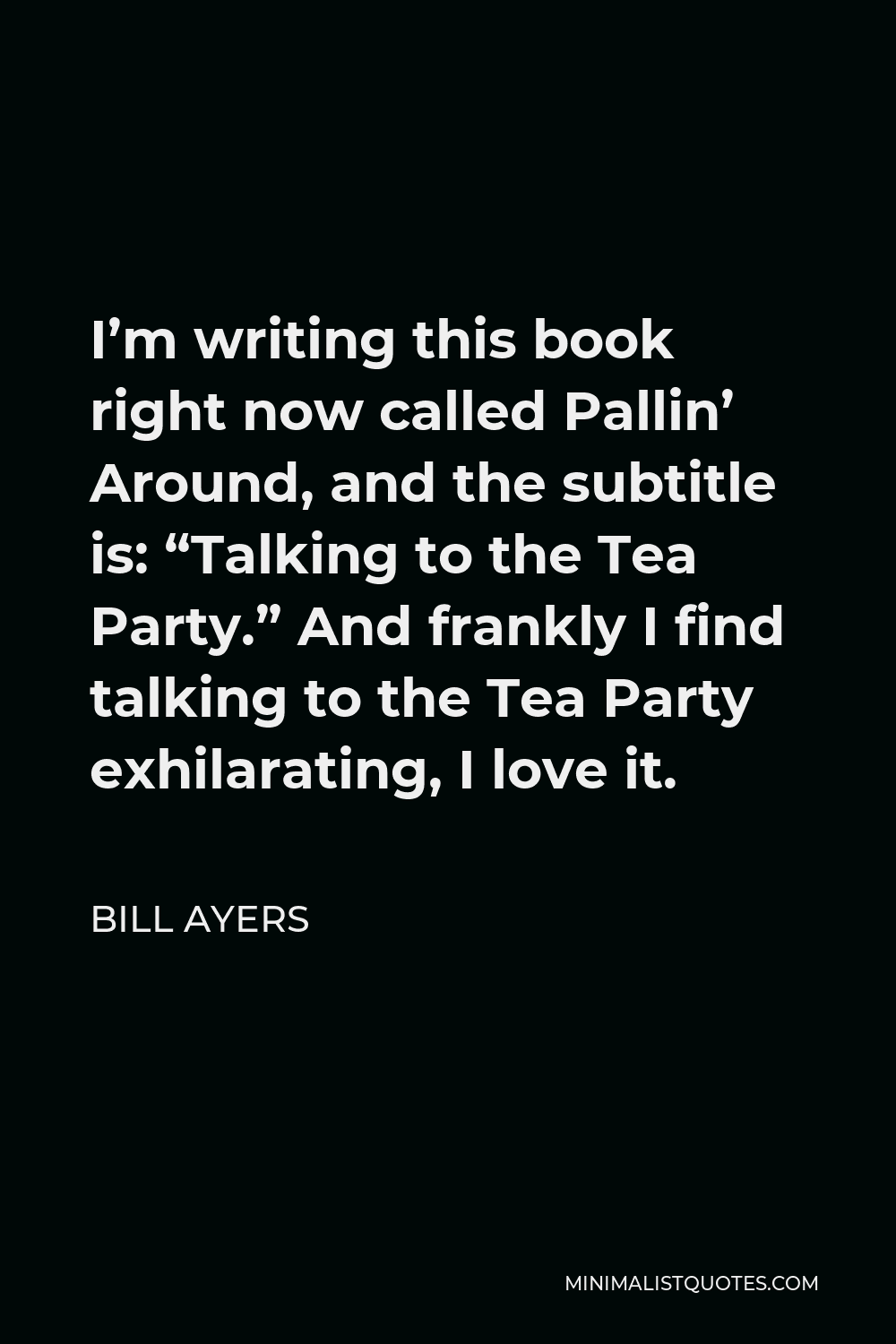
I’m writing this book right now called Pallin’ Around, and the subtitle is: “Talking to the Tea Party.” And frankly I find talking to the Tea Party exhilarating, I love it.
BILL AYERS -





![Bill Ayers Quote - His [Martin Luther King] last book, Where Do We Go From Here: Chaos or Community, is a direct reference to angles, barbarism or socialism.](https://minimalistquotes.com/images/his-martin-luther-king-last-book-where-do-we-go-fr.jpg)
His [Martin Luther King] last book, Where Do We Go From Here: Chaos or Community, is a direct reference to angles, barbarism or socialism.
BILL AYERS -





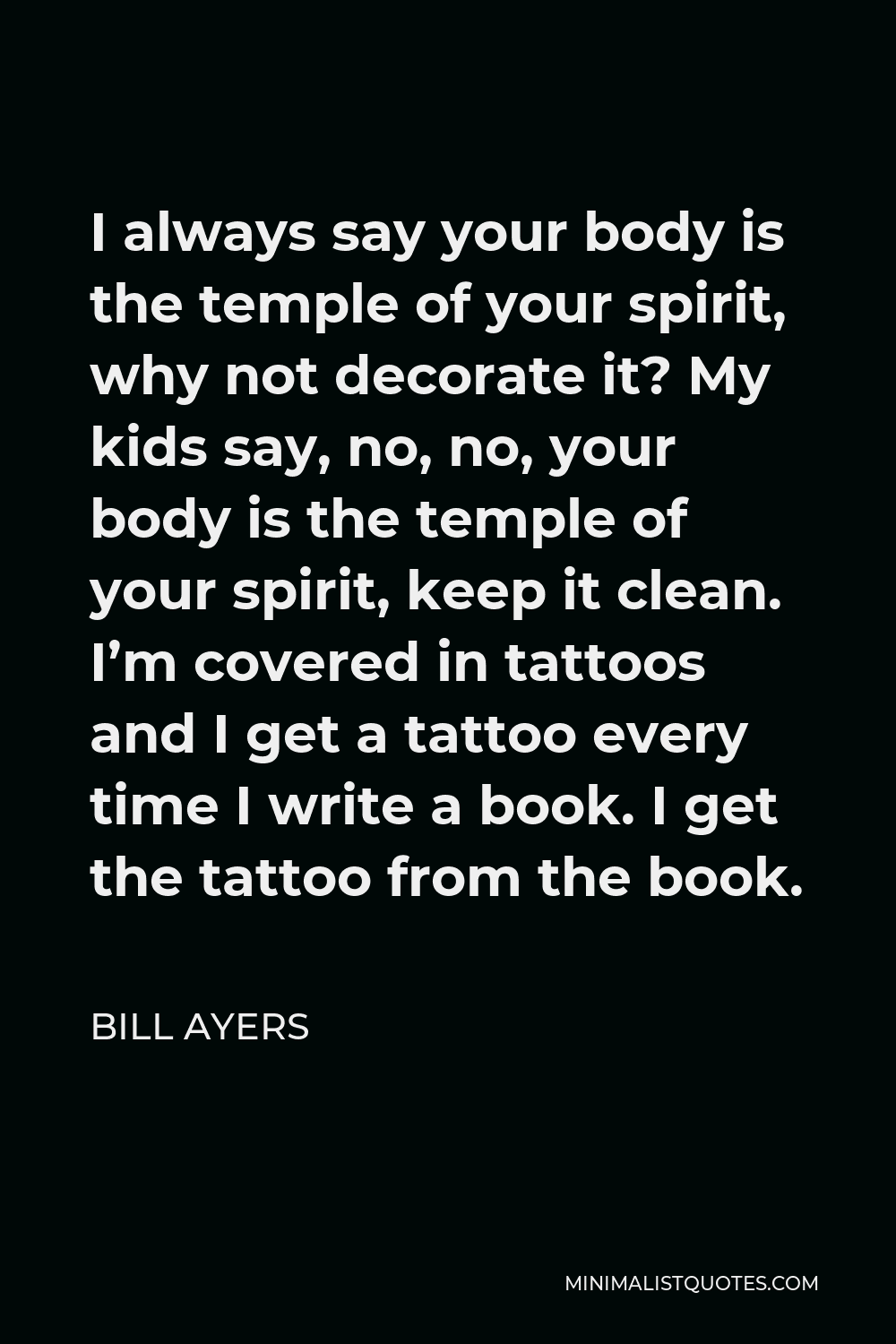
I always say your body is the temple of your spirit, why not decorate it? My kids say, no, no, your body is the temple of your spirit, keep it clean. I’m covered in tattoos and I get a tattoo every time I write a book. I get the tattoo from the book.
BILL AYERS -





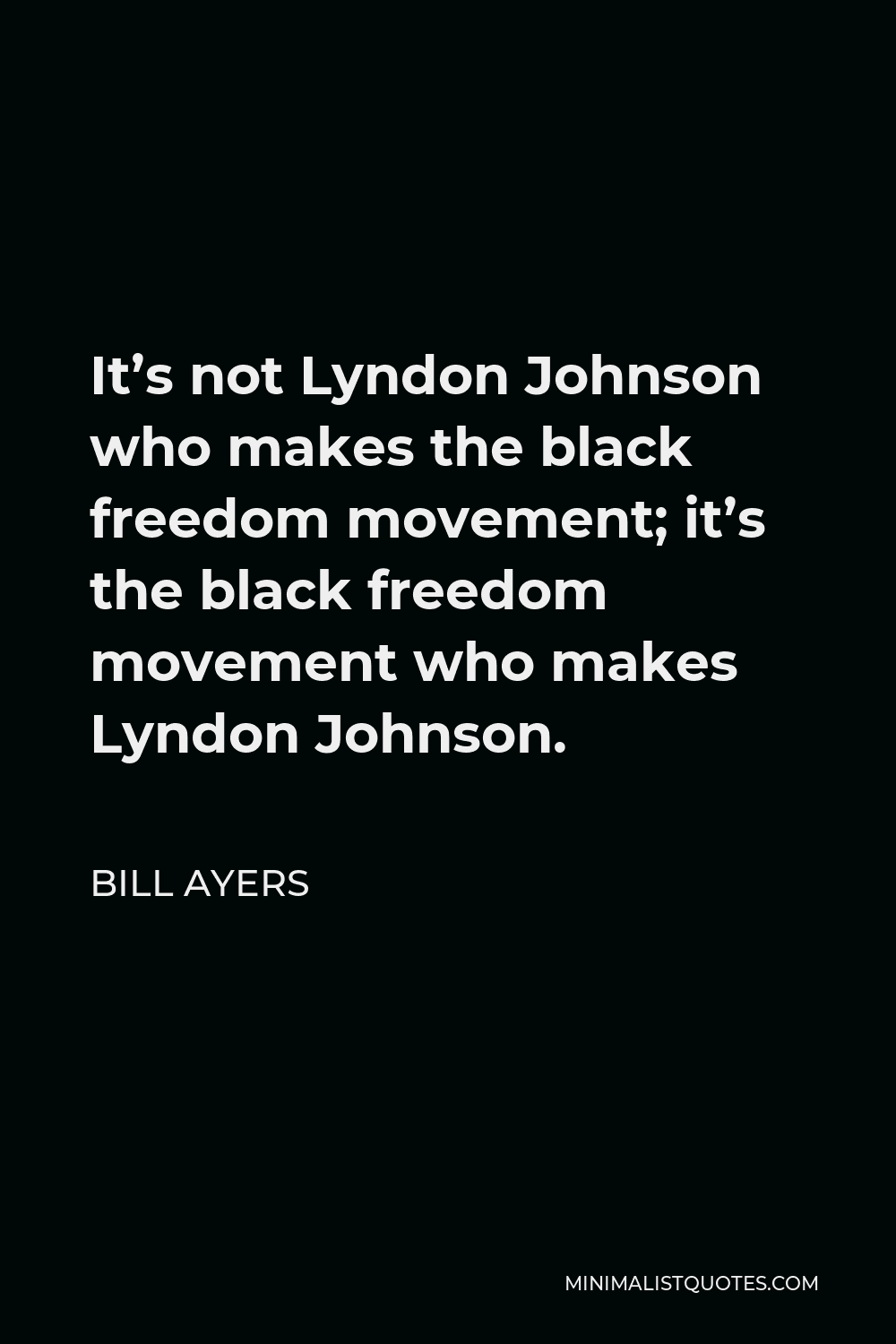
It’s not Lyndon Johnson who makes the black freedom movement; it’s the black freedom movement who makes Lyndon Johnson.
BILL AYERS -





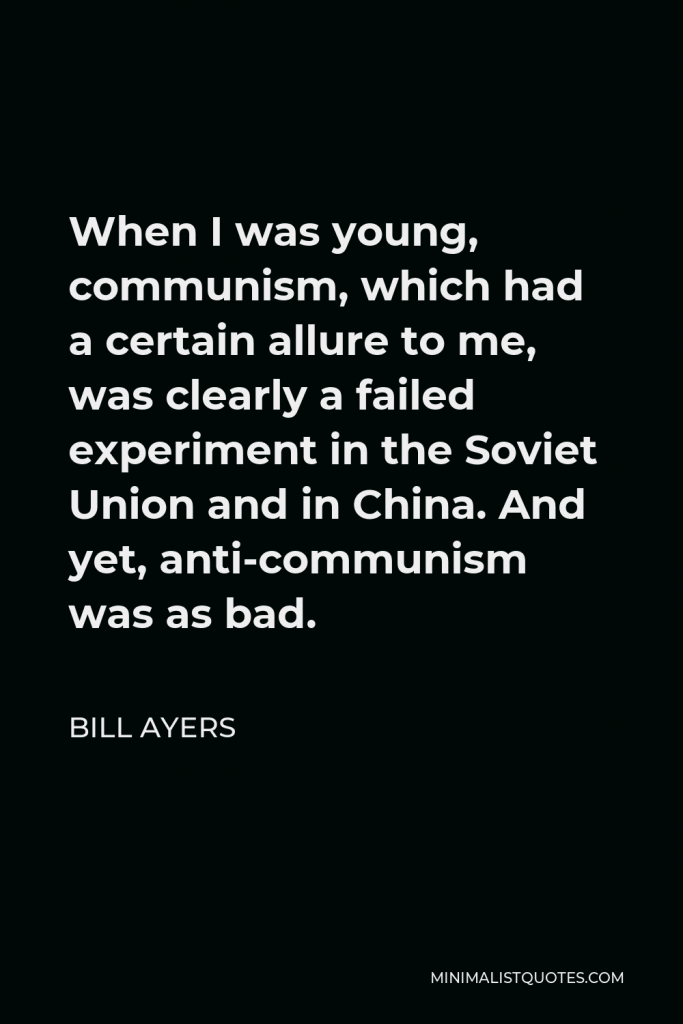

When I was young, communism, which had a certain allure to me, was clearly a failed experiment in the Soviet Union and in China. And yet, anti-communism was as bad.
BILL AYERS -





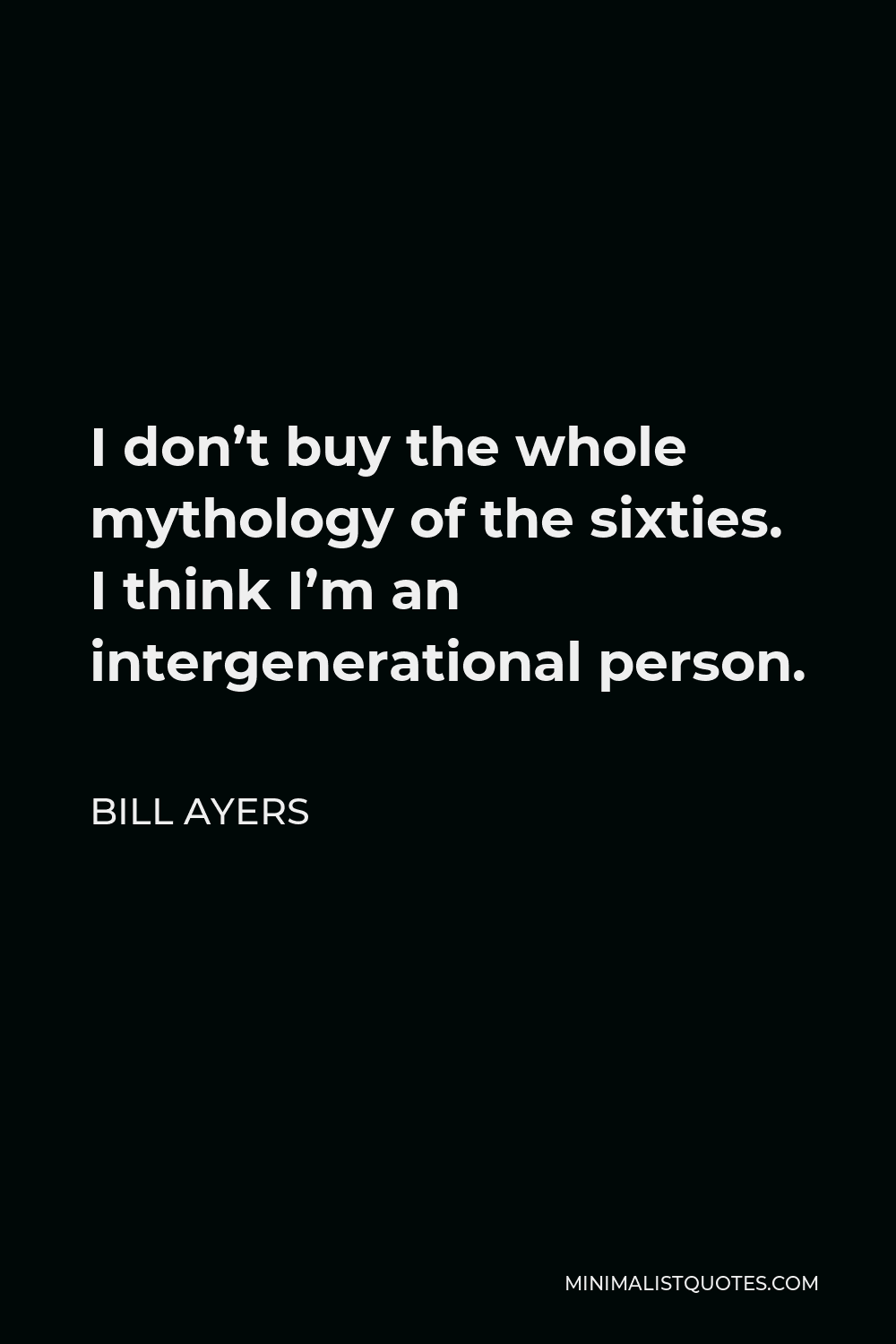
I don’t buy the whole mythology of the sixties. I think I’m an intergenerational person.
BILL AYERS -





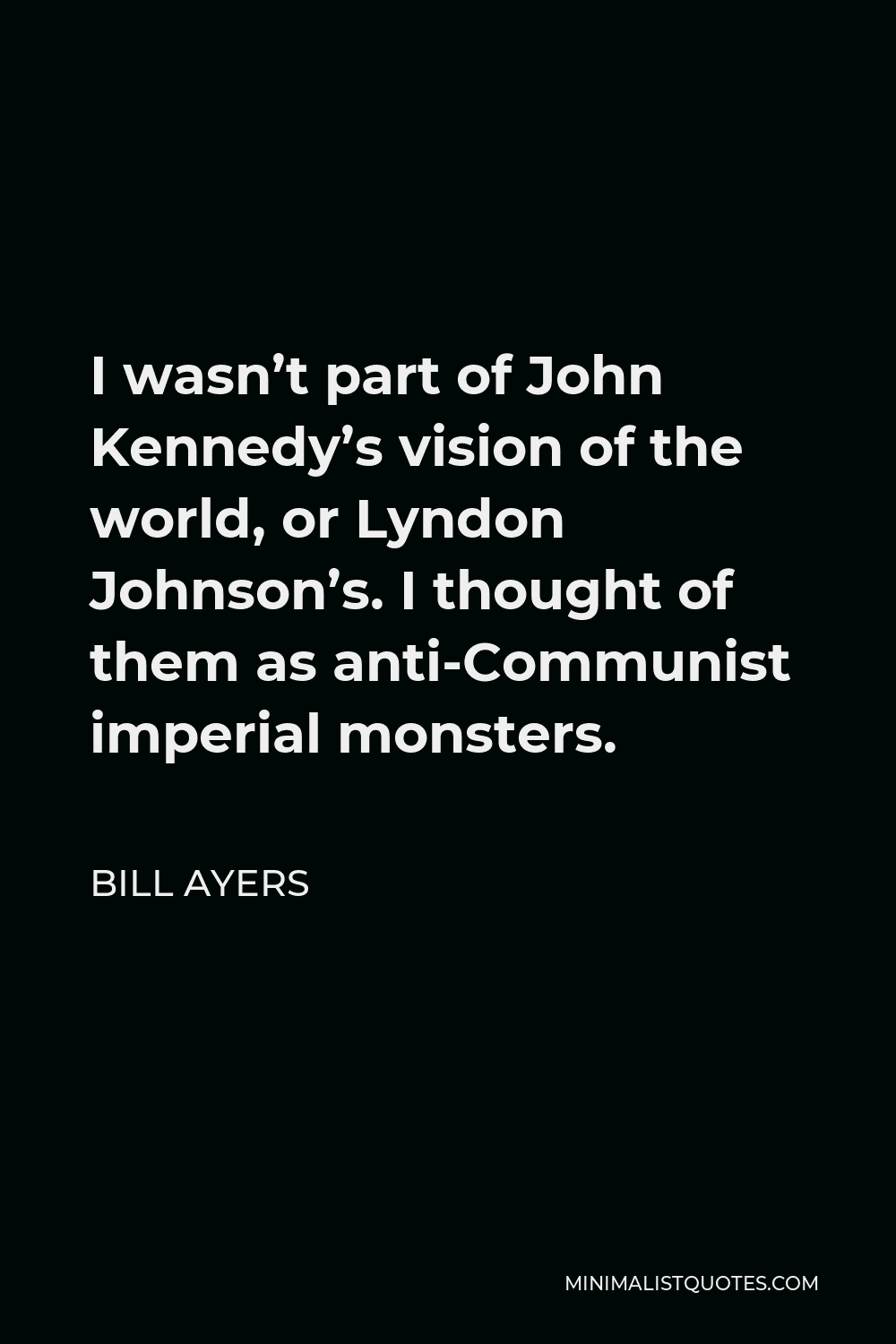
I wasn’t part of John Kennedy’s vision of the world, or Lyndon Johnson’s. I thought of them as anti-Communist imperial monsters.
BILL AYERS -





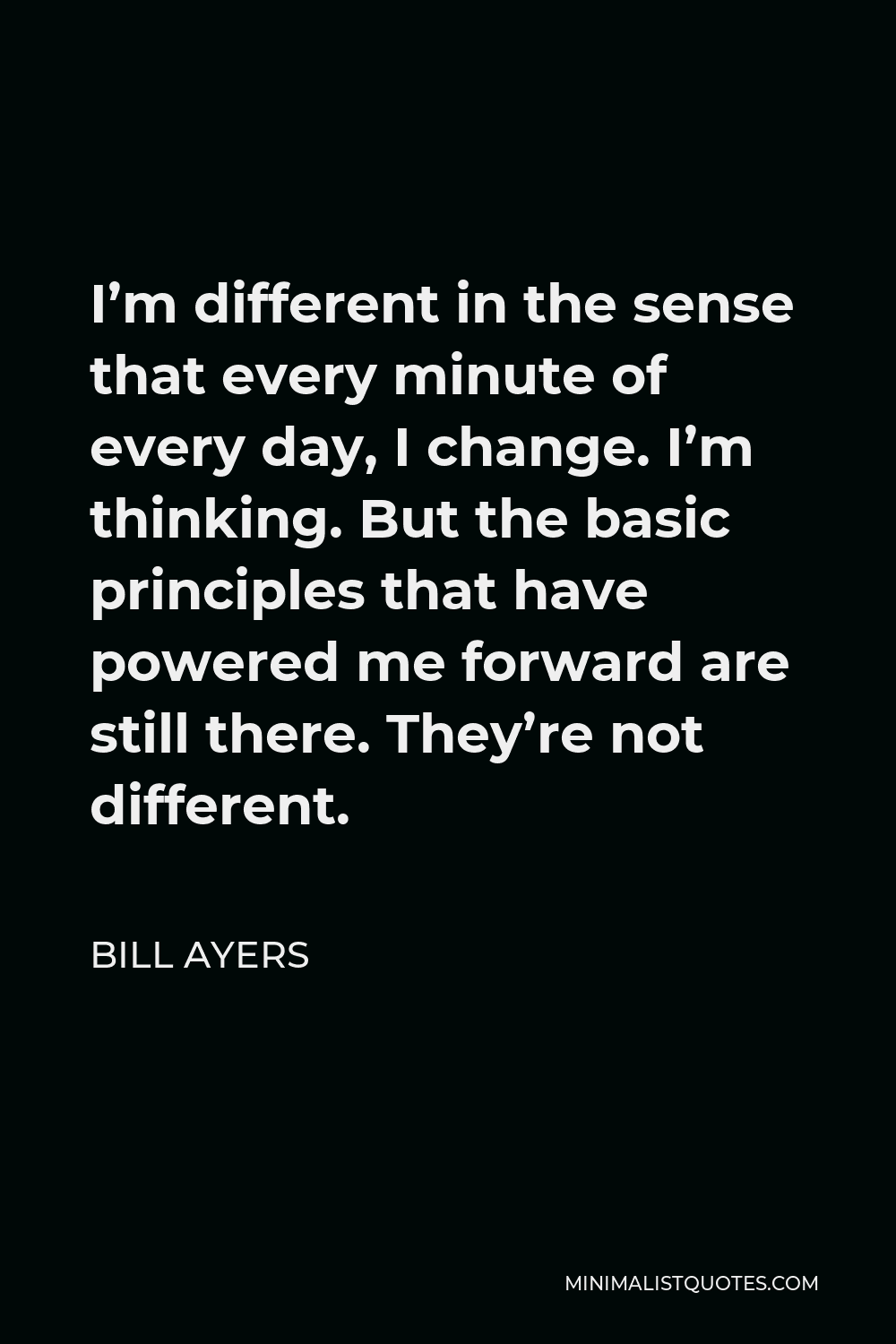
I’m different in the sense that every minute of every day, I change. I’m thinking. But the basic principles that have powered me forward are still there. They’re not different.
BILL AYERS -





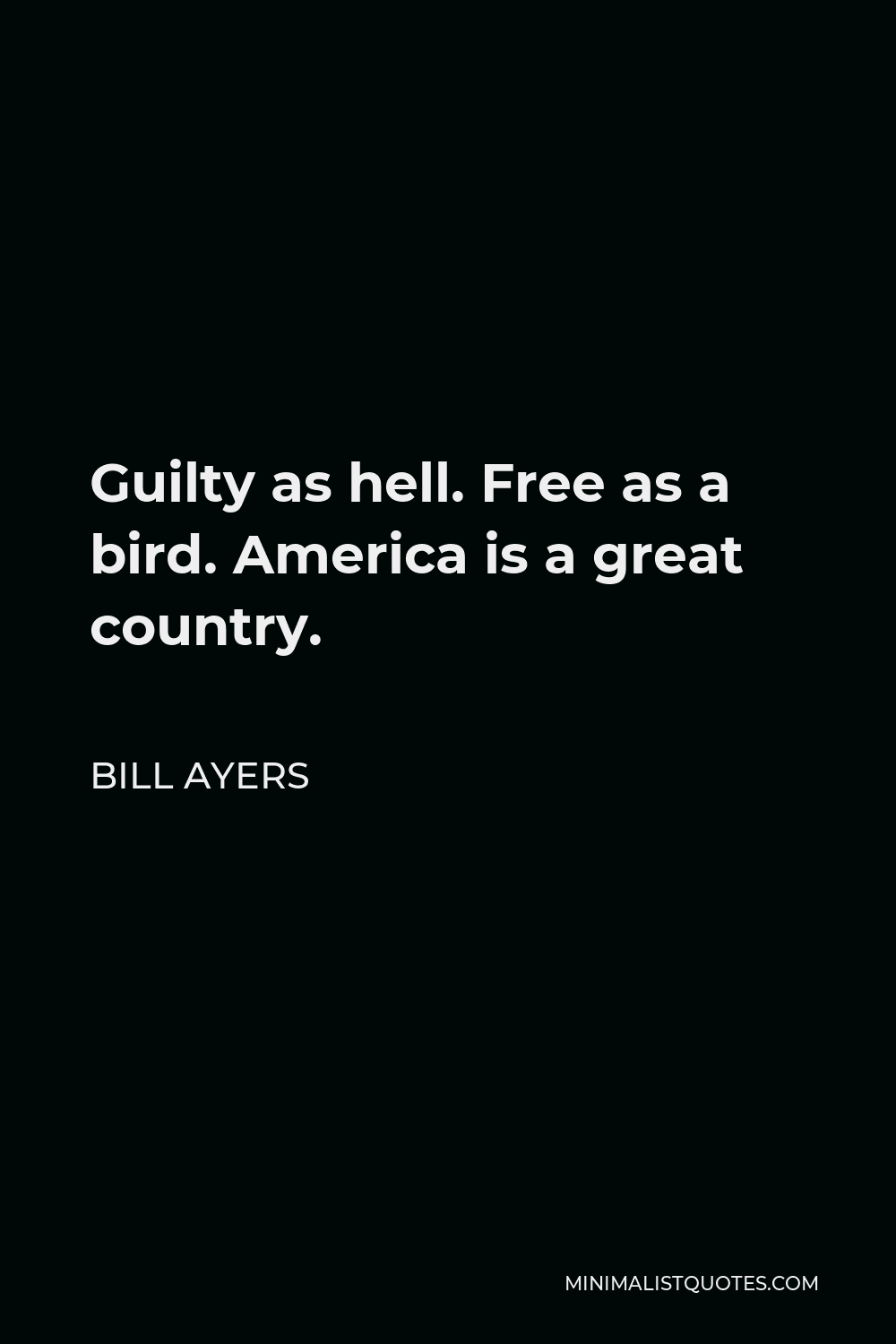
Guilty as hell. Free as a bird. America is a great country.
BILL AYERS -





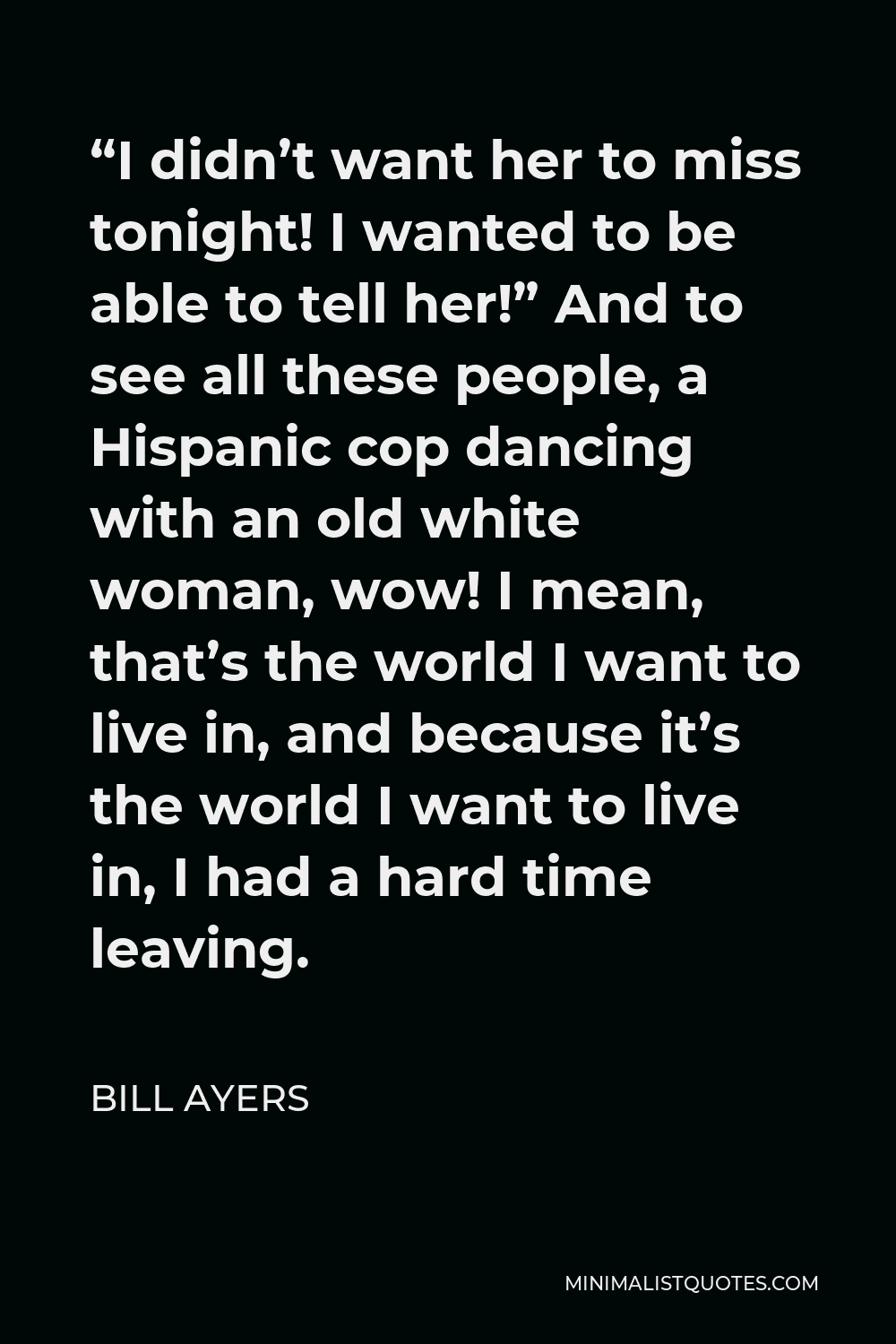
“I didn’t want her to miss tonight! I wanted to be able to tell her!” And to see all these people, a Hispanic cop dancing with an old white woman, wow! I mean, that’s the world I want to live in, and because it’s the world I want to live in, I had a hard time leaving.
BILL AYERS -





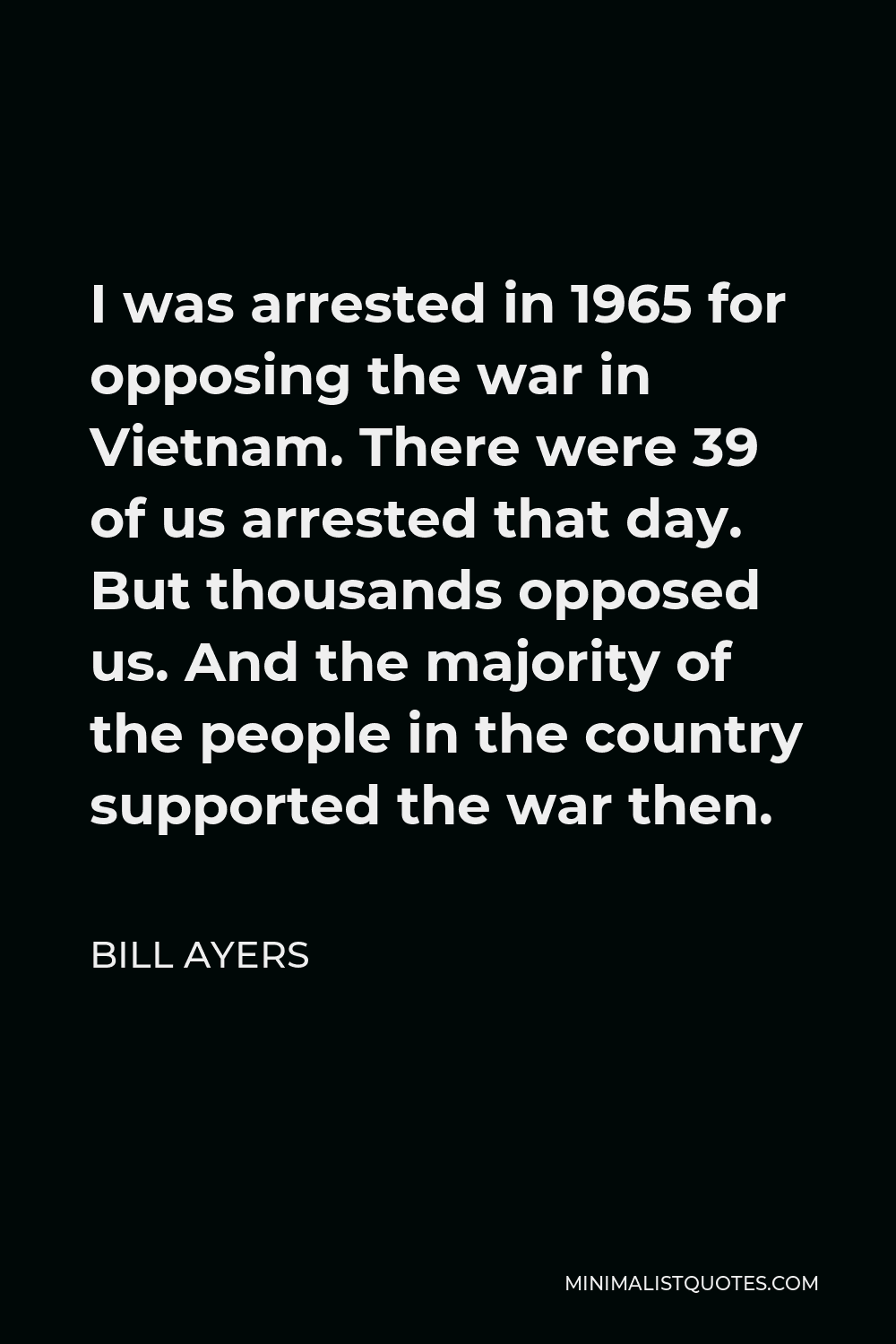
I was arrested in 1965 for opposing the war in Vietnam. There were 39 of us arrested that day. But thousands opposed us. And the majority of the people in the country supported the war then.
BILL AYERS -





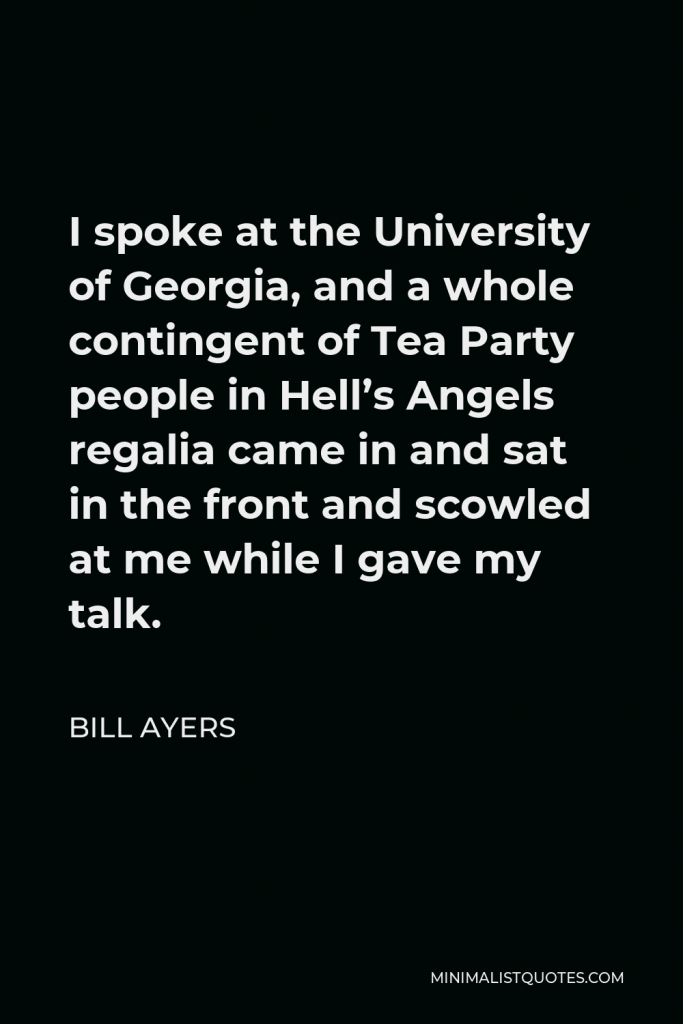

I spoke at the University of Georgia, and a whole contingent of Tea Party people in Hell’s Angels regalia came in and sat in the front and scowled at me while I gave my talk.
BILL AYERS -





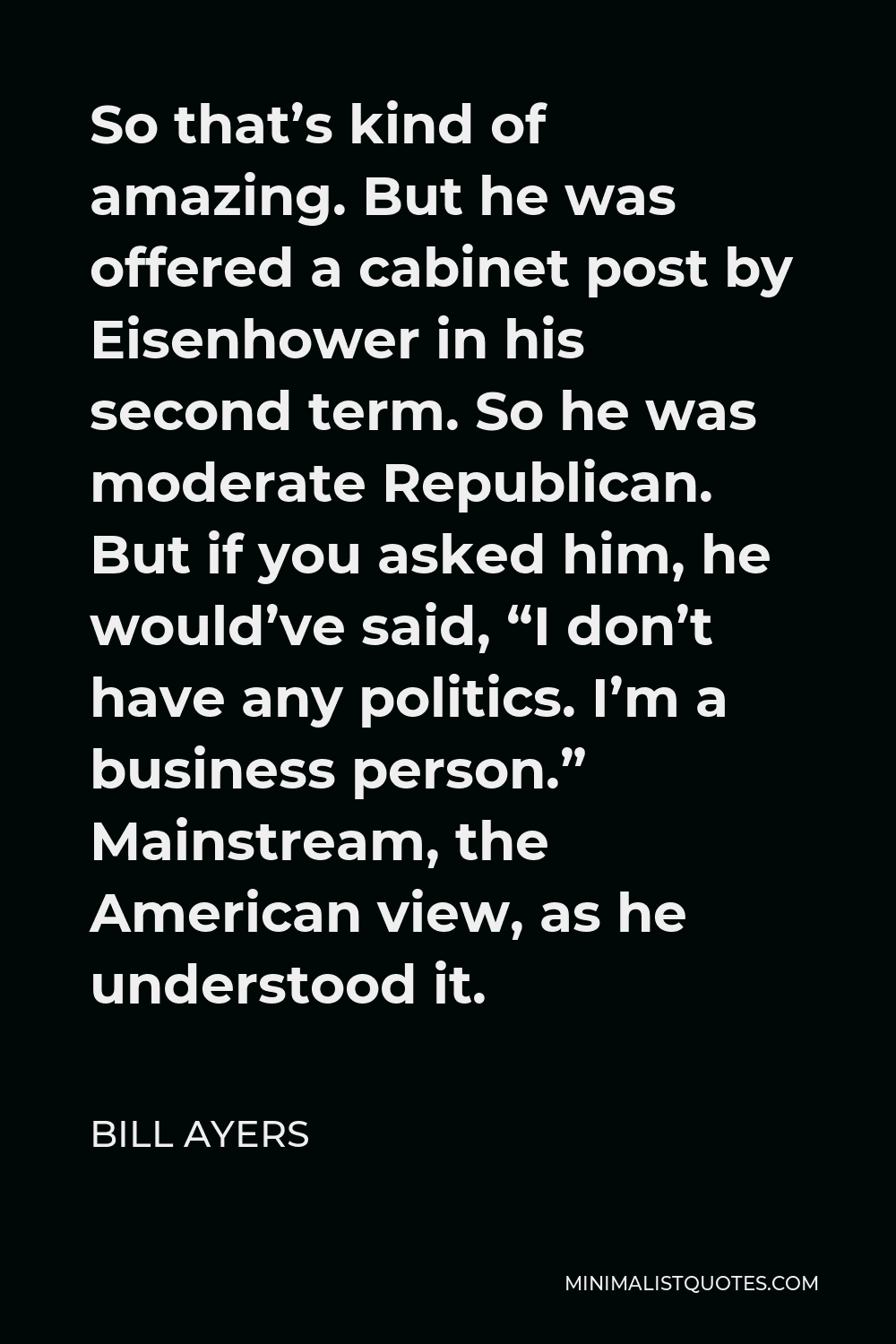
So that’s kind of amazing. But he was offered a cabinet post by Eisenhower in his second term. So he was moderate Republican. But if you asked him, he would’ve said, “I don’t have any politics. I’m a business person.” Mainstream, the American view, as he understood it.
BILL AYERS
